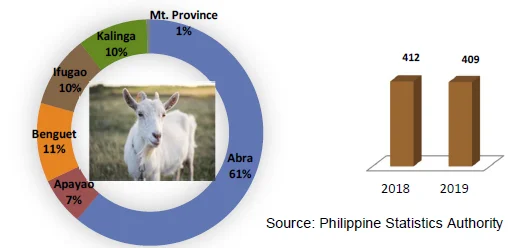Release Date :
Reference Number :
SR 2019-40
- Production of livestock refers to the volume of indigenous (locally-raised) animals disposed for slaughter which include animals exported or shipped-out for slaughter (in “head” and in “liveweight equivalent”).
-
The total volume of livestock production in CAR for the 1st semester of 2019 was 16,030 metric tons, liveweight. This was 4.5 percent higher compared with the previous year’s level of 15,339 metric tons liveweight.
Figure 1. Livestock Volume of Production, CAR
January-June 2018-2019
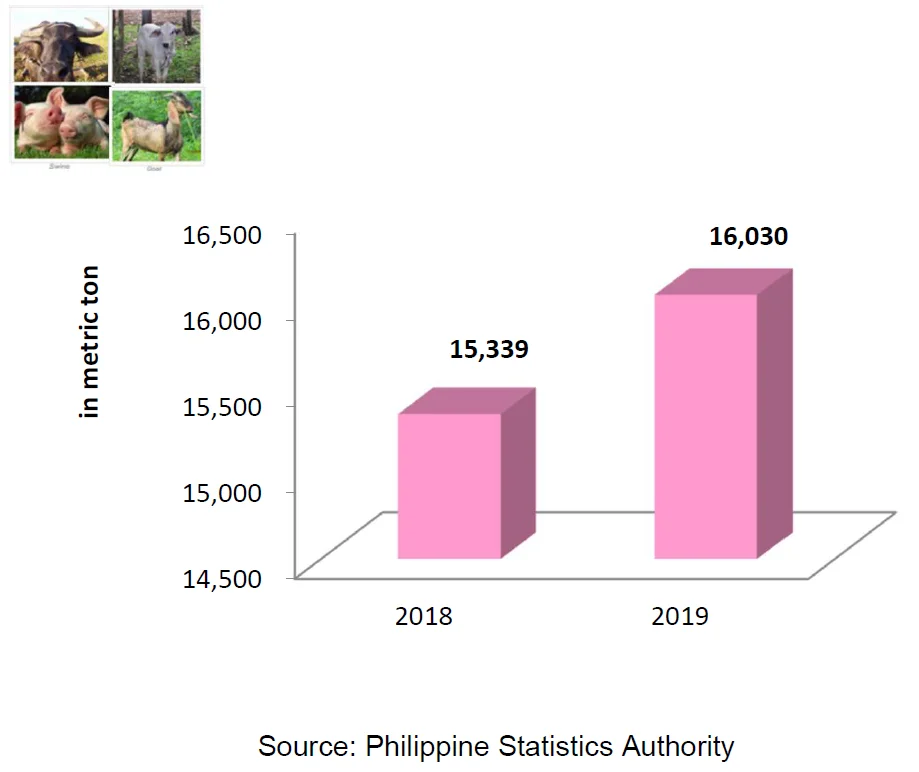
Table 1. Livestock Volume of Production
By Province, CAR: January-June 2018-2019
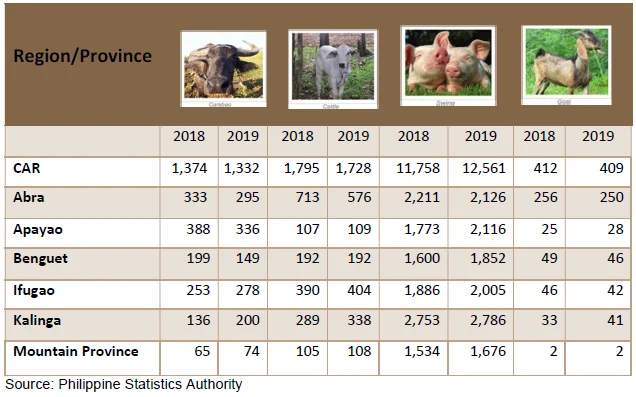
Figure 2. Percent Distribution of Total Livestock Production, CAR:
January-June 2019
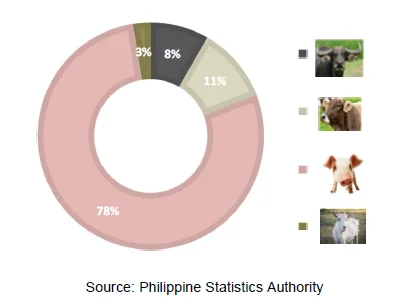
- Of the region’s total livestock production during the 1st semester of 2019, hog contributed the biggest share with 78 percent. The remaining 22 percent was shared by cattle, carabao and goat at 11 percent, 8 percent and 3 percent, respectively (Figure 2).
-
Carabao production was estimated at 1,332 metric tons, a decrease of 3.1 percent from last year’s level of 1,374 metric tons. Apayao was the major producer of carabao in the region with 25 percent contribution, followed by Abra with 22 percent and Ifugao with 21 percent.
Figure 3. Percent Distribution of Carabao Production, CAR:
January-June 2019
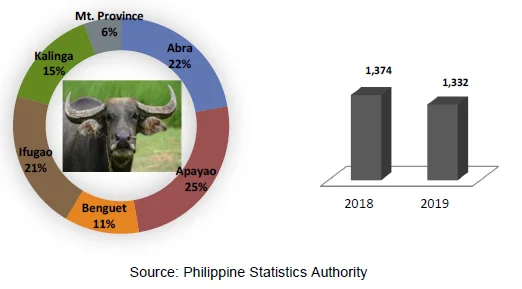
- Production of cattle for the 1st semester of 2019 posted a decline of 3.7 percent from last year’s 1,795 metric tons to this year’s output of 1,728 metric tons. Abra was the biggest contributor with 33 percent share.
Figure 4. Percent Distribution of Cattle Production, CAR:
January-June 2019
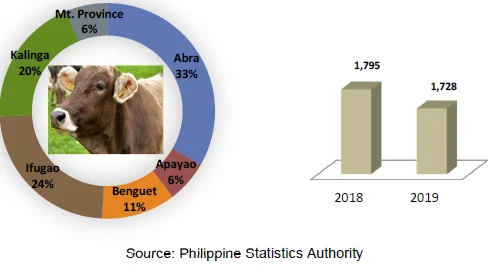
- On the other hand, hog production displayed an upward trend as it posted a 6.8 percent increase in the first half of 2019. Production went up from 11,758 metric tons in 2018 to 12,561 metric tons this year. Kalinga contributed the biggest share with 22 percent while the remaining five provinces of CAR had shares ranging from 13 to 17 percent.
Figure 5. Percent Distribution of Hog Production, CAR:
January-June 2019
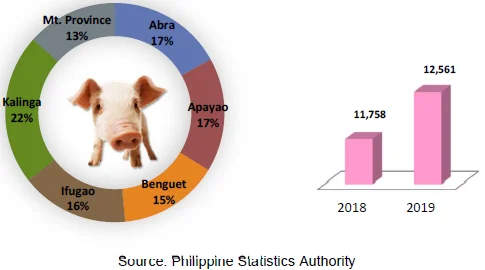
- Production of goat for the first semester of 2019 in the Cordillera was 409 metric tons. It recorded a minimal decline of 0.7 percent as compared to the 2018 output of 412 metric tons. Abra was the major producer of goat in the region having a share of 61 percent while Mountain Province contributed the least with only 1 percent.
Figure 6. Percent Distribution of Goat Production, CAR: January-June 2019
